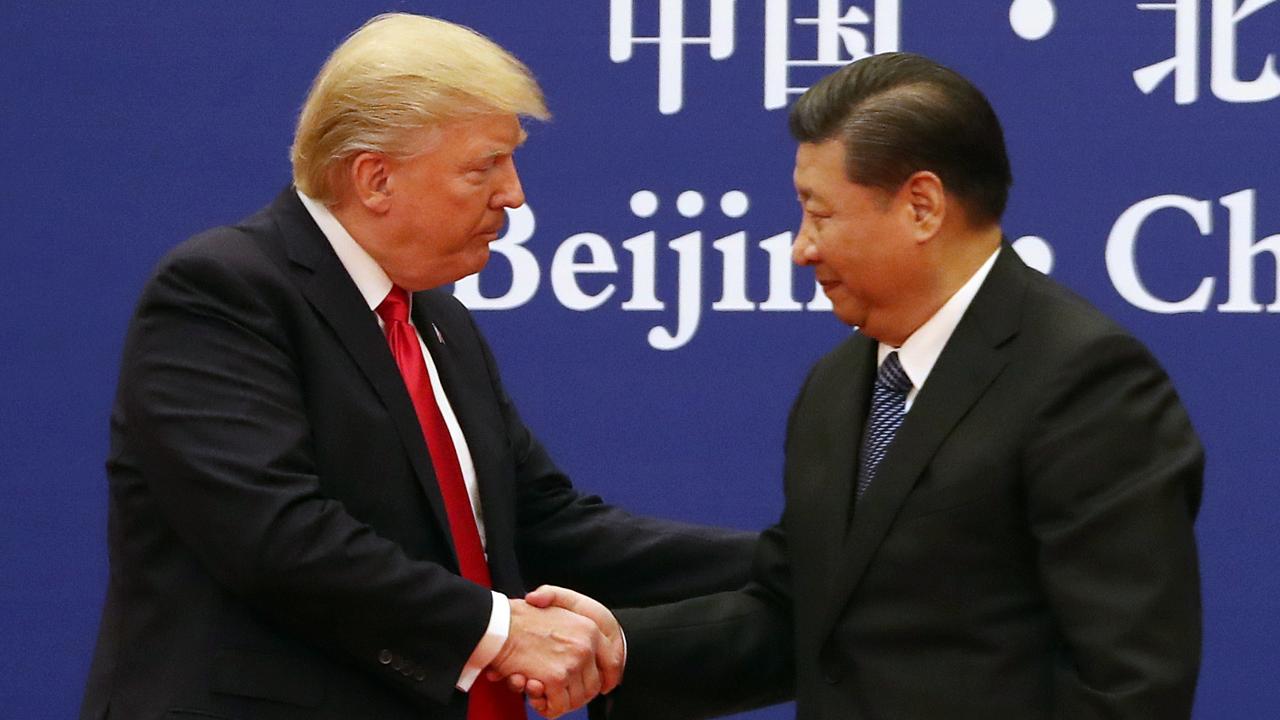US stocks rebound after huge early session plunge
Stocks shook off early session worries Monday that President Trump's threat to increase tariffs sharply this week on Chinese goods would threaten trade talks -- a fear that initially pummeled the Dow Jones Industrial Average by more than 400 points -- and recovered much of the day's declines.
Trump, in a pair of tweets on Sunday, said he would increase tariffs to 25 percent from the current 10 percent on $200 billion of Chinese goods. On Monday, the president tweeted that the U.S. loses $500 billion a year to China.
Trump, who has called himself a "tariff man," said he's losing patience. "The Trade Deal with China continues, but too slowly, as they attempt to renegotiate. No!" Trump tweeted.
That worried Wall Street investors who feared that the president's weekend threats would cause a Chinese trade delegation, set to visit Washington, D.C., this week to cancel the trip.
In the first few hours of trading, the three major averages experienced their heaviest selling since March 22; shortly after the opening bell 29 of the Dow Jones Industrial Average's 30 components were lower.
However, Chinese authorities confirmed, according to CNBC, that despite the fresh tariff threat they would still send a large delegation to the U.S. to continue talks this week aimed at resolving the one-year standoff between the world's two biggest economies,
That appeared to ease Wall Street fears and lift the sentiment of investors who trimmed the day's losses on the major indexes. The Dow recovered about 400 points near the end of Monday's session.
While the Dow, S&P 500 and Nasdaq Composite all closed modestly lower, the small-cap Russell 2000 rebounded from a 1.56 percent plunge to finish the day with a slight gain.
Bank of America Merrill Lynch analysts said the market's early session reaction to Trump's threat decreases the likelihood that the two nations will reach a trade deal.
| Ticker | Security | Last | Change | Change % |
|---|---|---|---|---|
| I:DJI | DOW JONES AVERAGES | 50115.67 | +1,206.95 | +2.47% |
| SP500 | S&P 500 | 6932.3 | +133.90 | +1.97% |
| I:COMP | NASDAQ COMPOSITE INDEX | 23031.213218 | +490.63 | +2.18% |
"When policy is very responsive to markets, the policy/markets equilibrium can be elusive," the bank's analysts said in a statement. "The result is increased volatility. The immediate market response suggests that the latest escalation of the trade war was a complete surprise to investors. This means that markets could be in for a bumpy ride before a trade deal is reached."
Shares of corporations dependent on trade with China, such as tech companies, were hit hard. Nvidia stock and Apple stock fell hard from the opening bell. The iPhone maker gets 20 percent of its revenue and 27 percent of its operating revenue from China.
General Motors, Ford Motors and Fiat Chrysler lost value as did heavy equipment makers like Caterpillar.
"We believe the threat of incremental trade friction could have material and negative ramifications for the auto industry," Bank of America Merrill Lynch analysts said. "This, combined with a fading US cycle and other emerging headwinds, could pressure multiples and limit upside to auto stocks."
| Ticker | Security | Last | Change | Change % |
|---|---|---|---|---|
| NVDA | NVIDIA CORP. | 185.41 | +13.53 | +7.87% |
| BA | THE BOEING CO. | 243.03 | +6.08 | +2.57% |
| AAPL | APPLE INC. | 278.12 | +2.21 | +0.80% |
Despite the hammering of equities on Monday, year-to-date the U.S. stock market has achieved strong results: The S&P 500, for example, is up 18 percent since Jan. 1, 2019.
Crude oil prices declined, with West Texas Intermediate down 0.53 percent to $61.61.
The yield on the 10-year Treasury slipped fractionally to 2.49 percent.
CLICK HERE TO GET THE FOX BUSINESS APP
Global equities were hammered by the apparent negative turn in Beijing-Washington trade talks. China’s Shanghai Composite tumbled 5.58 percent and the Hang Seng fell 2.9 percent. Japan's stock market was closed for a holiday.
France’s CAC 40 fell 1.93 percent and Germany’s DAX declined 1.86 percent. Britain's stock exchange was closed for a holiday.
The Associated Press contributed to this article.




















